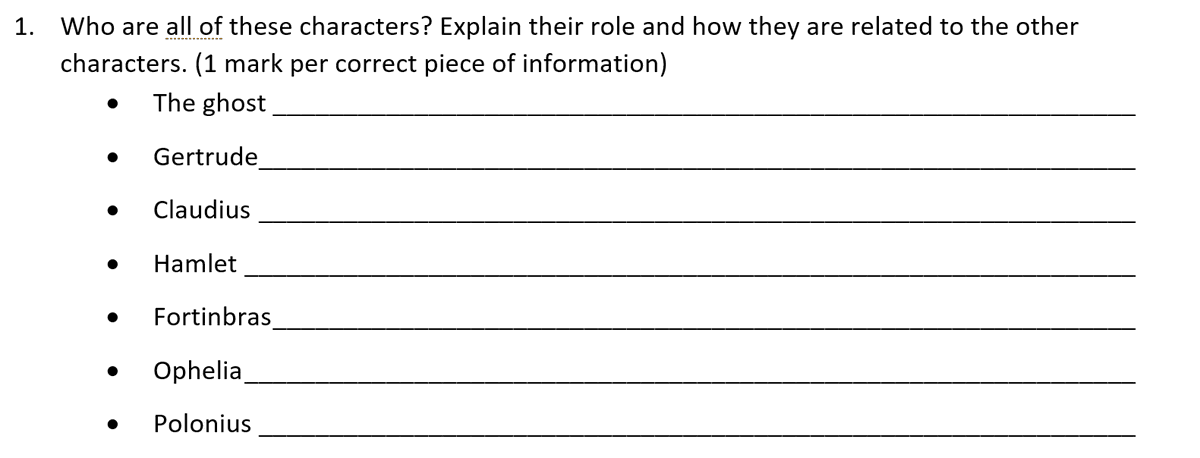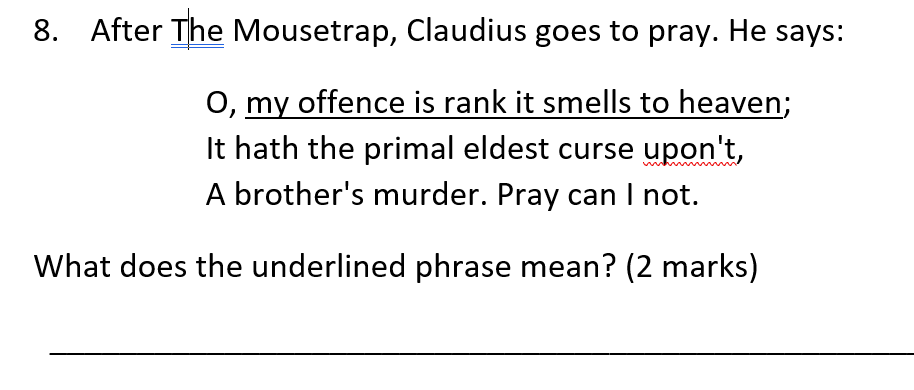Show What You Know assessments in KS3 - a thread. This is about how I am changing or adding to my literature assessments in KS3. In Years 7-9 our pupils study a novel, a play, and a collection of poetry. Each has been assessed in the traditional & #39;essay& #39; like fashion. 1/n
So for example with a novel, we might do an extract analysis and a whole text essay as an assessment and justify that as mirroring the GCSE (fyi Edexcel split these into two discrete essays). As you can imagine we build it up from Year 7 but that is essentially what we do 2/n
In lesson we do the usual recall tasks to test students& #39; knowledge and understanding. These are low stakes tests, we might give out numeric marks but I hadn& #39;t used them to create & #39;progress grades& #39;. However, this term I have made a change and I kinda like it... 3/n
I have this one class who are studying Hamlet with me. On paper these kids would not be natural scholars of Shakespeare. But something about Hamlet gripped them from the beginning. Perhaps it& #39;s the & #39;almost incest& #39;, maybe a virgin, murder, suicide plot line? 4/n
Ok, so why change the assessment? Firstly, I really wanted to give me class a chance to show off their knowledge. On 2 hours a week, they impressed me from week to week with how much they could remember. I asked them about characters first. The results were interesting...4/n
Next up was demonstrating knowledge of the events in the text. For me this question was partly about ensuring that they was a longer writing question and then that & #39;whole novel& #39; skill as well. To take a key moment and distil the key bits from it. 5/n
6/n After this some questions focused on exploring Shakespeare& #39;s language: identifying techniques, seeing what they could remember about some of the key quotes. These were probably the most tricky for my class. They love Shakespeare& #39;s stories, his words can be hard.
7/n For pupils with low reading confidence tackling quotes like this one - it was a big ask. But rather than planning the use of this essay in an essay or placing it in an extract - the tight focus on one line enabled most pupils to have a good go at finding meaning.
8/n There were 2 more opportunities to their understanding of the events in the play. In the test, it was interesting to see some of my students choose to answer these questions first - they felt more confident perhaps. Thus allowing more time on the quote based questions.
9/n Last up was a simple, what do you think happens next question. This worked really well for the point in the play we& #39;ve reached (just after Polonius& #39; death). The best answers here considered what Hamlet& #39;s actions might be and what Claudius& #39;s actions might be.
10/10 Here& #39;s a link to my Hamlet assessment if you want to use / adapt. Nothing revolutionary. https://drive.google.com/file/d/1CfLCsUX-b-eCMNyp_Zu1Lsbb2opNO17u/view?usp=drivesdk">https://drive.google.com/file/d/1C...

 Read on Twitter
Read on Twitter








